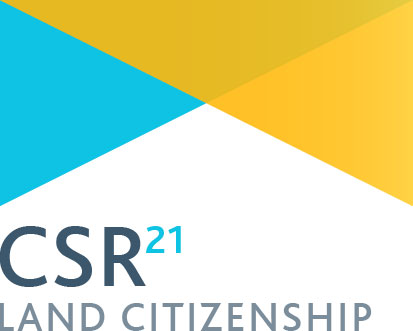
African chiaroscuro
Two contrasting African pieces today.
In one, we learn from the Guardian that Africa is “losing billions from fraud and tax avoidance” - not a new problem; indeed, one we’ve mentioned before.
Former UN secretary-general Kofi Annan was in Abuja last week speaking on the issue, urging all presidential candidates and parties “to rise above the personal and debate the issues that matter.” It’s a beautiful dream, but according to the article Africa’s “currently losing over $50bn (£33bn) every year in illicit financial outflows as governments and multinational companies engage in fraudulent schemes aimed at avoiding tax payments to some of the world’s poorest countries, impeding development projects and denying poor people access to crucial services.”
A recent report by the African Union and the UN economic commission for Africa (UNECA). report estimates the value of illegal transfers out of Africa at USD 60 billion— triple that of 2001. That’s not in any way a positive trend, and light’s in short supply at the end of that particular tunnel. In total, says the report, the continent lost about $850bn between 1970 and 2008, the report said. Nigeria (surprise!), Egypt and South Africa provide notably egregious examples.
Other points in the piece include:
- Information on mechanisms designed to hide revenues by companies
- Key sectors where trade mispricing occurs
- Thabo Mbeki’s take on the issue
- Other outflow channels including drugs, human trafficking, poaching etc.
- What needs to be done in terms of urgent, coordinated action.
Meanwhile, however, the flipside. In this piece, African Business Review asks the question “Is Africa on the verge of a new era of economic growth and development?”
There are, apparently, signs. The unsophisticated obvious answer to that would have to be “yes,” but with the equally obvious caveat “not for everybody”; while there’s no shortage of big brains making the increasingly clear point that inequality’s bad for everyone, winners included, it continues to grow. And Africa’s a big ol’ petri dish in that respect and no mistake. As the piece points out:
Growth from 2000 to 2010 averaged over 5 per cent per annum. Even while the financial crisis hammered the economies of the West, average growth across the continent managed to stay firmly in positive territory.
While this is an encouraging foundation, more needs to be done to deliver sustainable growth. To effectively reduce poverty, Africa must grow at an average of 7 per cent or more – not far short of China’s current (and slowing) growth rate. To achieve this, investment needs to be at around 25 per cent of GDP; over the last two decades, it has been closer to 18 per cent. Closing this gap must therefore be an imperative for policymakers.
The Review also draws attention to a recent report it published entitled Curve Balls: Global Political Risks in 2015 and beyond, which identifies key threats to achieving this, including Africa’s weak financial systems, the regional impact of Ebola and lack of competition.
The article also covers:
- Reasons to be optimistic, including the charted impacts of “disruptive developments” such as mobile payment systems and microfinance
- What’s needed to complete the jigsaw, including access to finance; “well-regulated, functional capital markets coupled to a competitive banking system that will allow expansion to be financed though loans and issuance of debt and equity” (that would be nice); and reliable, trustworthy savings and investment products
- Opportunities and threats in terms of robustness in the face of shocks such as Ebola (“The United Nations Economic Commission for Africa (UNECA) predicts that, in 2015, Ebola will reduce total African GDP by 0.15 per cent”)
…and ends on a positive note: “Despite the challenges, we are optimistic for the future. While many have focussed on the clear shift of the economic centre of gravity to the East, there is colossal economic potential in Africa that can be unlocked too. An innovative, well-functioning financial system will help make this a reality. Economic growth and increased prosperity will help African countries tackle the challenges they face and make them more resilient to shocks. In Africa, there is a clear opportunity for the finance industry to prove its social value. It should be grabbed with both hands.”
Well, here’s hoping.
ENDS
https://www.theguardian.com/global-development/2015/feb/02/africa-tax-avo...
https://www.csr21.org/content/africa-under-pressure-reform-tax-regimes
https://www.csr21.org/news/geopolitical/africas-future-economic-powerhouse
https://www.africanbusinessreview.co.za/leadership/1820/Is-Africa-on-the-...
https://www.cii.co.uk/media/5808612/cii_political_risk_report_2015.pdf
https://www.csr21.org/news/risk/link-ebola-digest-monday-2-feb





